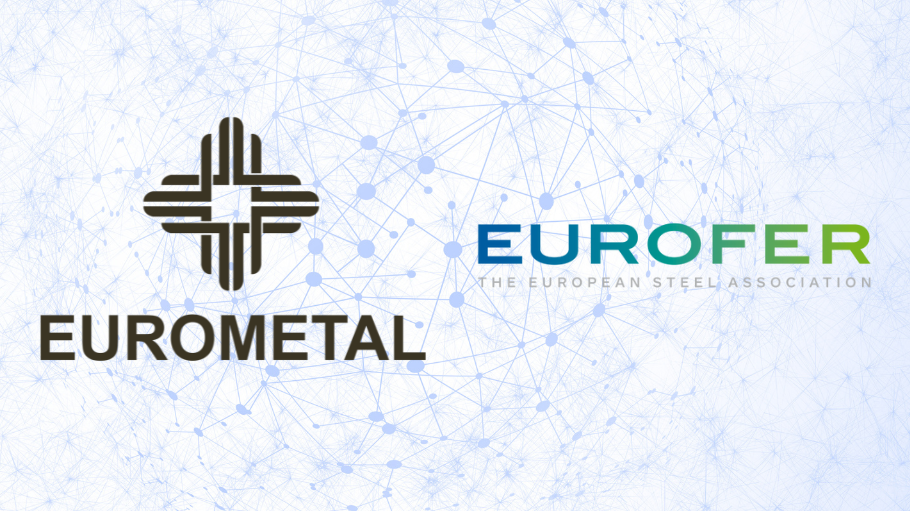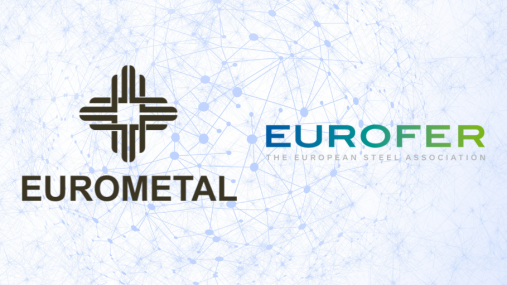
Joint Statement Safeguarding the European Steel Value Chain: A Call for Immediate Action
Joint Statement Safeguarding the European Steel Value Chain: A Call for Immediate Action
Downloads and links
Recent updates

Brussels, 28 July 2025 — The European steel value chain is at a critical juncture. Deindustrialization is accelerating across both steel production, distribution and processing, threatening the resilience, competitiveness, and long-term sustainability of a sector essential to Europe's strategic autonomy and industrial base.
EUROMETAL and EUROFER jointly urge the prompt introduction of robust trade measures for steel derivatives. The objective is not to halt imports but to re-establish equilibrium and ensure that import volumes align with the sustainability of EU-based steel processing and manufacturing. This aligns with the Steel and Metals Action Plan’s goal to protect and promote European industrial capacity and quality employment across the supply chain.
The influx of non-EU steel based products continues to replace EU-manufactured goods, entering the market without being subject to equivalent protective measures as for imported steel. Sectors critical to Europe’s green transition are experiencing significant challenges due to these imports. Notably, products essential for certain energy applications now represent up to 50% of EU consumption, adversely impacting the region’s manufacturing industry, leading to job losses, reduced investment in research and development, and a further decline in EU steel production.
EUROMETAL and EUROFER remain committed to maintaining a resilient, competitive, and integrated European steel ecosystem. The Steel and Metals Action Plan correctly identifies the risk that carbon leakage in CBAM-covered goods may extend further downstream in the value chain. A similar risk exists in trade policy: exempting downstream products from effective trade protections could intensify pressures—and subsequent damage—deeper into the supply chain. The OECD has observed an ongoing structural shift in global trade patterns, noting record-high direct Chinese steel exports in 2024 alongside rapid growth in indirect steel exports embedded within fabricated or transformed products, particularly originating from China, South Asia, and the ASEAN region.
Strengthening each segment of the steel value and supply chain is essential for Europe to maintain access to high-quality materials, drive industrial decarbonisation, and achieve a fair transition to a green and digital economy.
Contact
Lucia Sali, Spokesperson and Head of Communications, +32 2 738 79 35, (l.sali@eurofer.eu)
About the European Steel Association (EUROFER)
EUROFER AISBL is located in Brussels and was founded in 1976. It represents the entirety of steel production in the European Union. EUROFER members are steel companies and national steel federations throughout the EU. The major steel companies and national steel federation of Turkey, Ukraine and the United Kingdom are associate members.
The European Steel Association is recorded in the EU transparency register: 93038071152-83.
About the European steel industry
The European steel industry is a world leader in innovation and environmental sustainability. It has a turnover of around €215 billion and directly employs around 298,000 highly-skilled people, producing on average 146 million tonnes of steel per year. More than 500 steel production sites across 22 EU Member States provide direct and indirect employment to millions more European citizens. Closely integrated with Europe’s manufacturing and construction industries, steel is the backbone for development, growth and employment in Europe.
Steel is the most versatile industrial material in the world. The thousands of different grades and types of steel developed by the industry make the modern world possible. Steel is 100% recyclable and therefore is a fundamental part of the circular economy. As a basic engineering material, steel is also an essential factor in the development and deployment of innovative, CO2-mitigating technologies, improving resource efficiency and fostering sustainable development in Europe.

EUROFER wishes to comment and clarify on the concerns expressed in the above-mentioned statement:
Strasbourg, 17 December 2025 – The European Commission’s latest proposals on the Carbon Border Adjustment Mechanism (CBAM), unveiled today, correctly identify several loopholes that risk undermining its effectiveness, notably regarding EU exports, downstream sectors and circumvention practices. However, despite these laudable efforts, the measures put forward fail to deliver a comprehensive and durable response to carbon and jobs leakage, warns the European Steel Association (EUROFER).
A milestone occasion to quickly and effectively restore affordable electricity, to relaunch the
decarbonization and strengthen the international competitiveness of the European steel
industry.